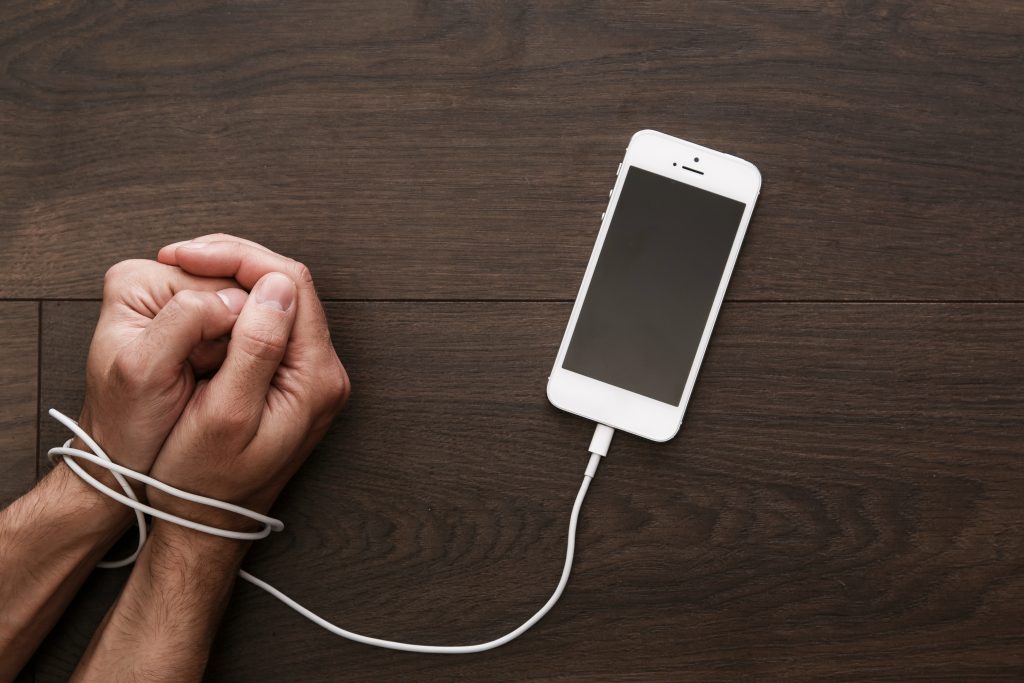Comrade, you and I and almost everyone we know are veterans of a revolution. Not exactly what Lenin had in mind, exactly. More like Gutenberg or Edison.
It is hard to believe that in fewer than two decades, our daily lives have been turned upside down.
We have Youtube, Facebook, Google, Netflix, and most revolutionary of all, the smartphone.
Go anywhere, from a park to a pew, from a stroll in a mall to the guy in the car in front of you who doesn’t move when the light turns green: Odds are, you will see people face-planted in their phones.
People go do dinner with their significant others, and both put their phones on the table, ready to pick them up at a moment’s notice like a pair of gunslingers on Broadband Avenue.
It might be a call, a text, a report from Twitter, or just the need to find out who was the keyboardist for Jonathan Richmond and the Modern Lovers or who played Dumbledore in “Harry Potter and the Sorcerer’s Stone.” Enquiring minds race to know.
By all appearances the revolution has been successful. Some people are very, very rich as a result, and all of us can’t imagine what life was like back in, say, 1980. To visualize life without 24/7 connectivity seems unreal.
Can we even imagine a couple like Romeo and Juliet who would not have been in constant contact with Snapchat and known exactly what Friar Laurence’s plan was? Can we suspend that much disbelief?
But the resistance is beginning to push back on the digital utopia we have all been sold. Chris Hughes, the co-founder of Facebook, recently created a digital tsunami when he wrote in The New York Times that Facebook should be broken up.
He mentioned as precipitating factors “the company’s mistakes — the sloppy privacy practices … the slow response to Russian agents, violent rhetoric, and fake news … the unbounded drive to capture ever more of our time and attention.”
Jia Tolentino, writing in the April 29 edition of The New Yorker, focuses on the addictive quality of our phones, devices intentionally designed to be addictive, and the impact this is having on us.
She quotes another expert, Cal Newport, who “insists that our internet-fueled lack of mental peace and quiet is a better explanation for the current wave of American anxiety than ‘the latest crisis — be it the recession of 2009 or the contentious election of 2016.’ ”
Much of the mental distress we are feeling is courtesy of social media. Not only are we addicted to the phones themselves, but also to the little surges of pleasure or pain as we count our likes or heap digital coals on the heads of those we dislike.
Jaron Lanier, another Silicon Valley insider, has written “Ten Arguments for Deleting Your Social Media Accounts Right Now.” Argument number three is that “social media is making you into a” jerk. Only he doesn’t say jerk.
Lanier has joined a growing crowd of tech sophisticates who are biting the hand that bestowed great riches on them. Elites in northern California send their kids to schools that ban or greatly limit screens, and the digital divide may now exist between the upper classes who see the danger, and the hoi polloi who give smartphones to their 10-year-olds and use iPads as babysitters.
In her New Yorker piece, Tolentino warns that “social media might someday occupy a status akin to cigarettes, which are peddled as a pleasure and a relief to the lower classes but which elite Americans largely attempt to avoid.”
What started out as liberating has in fact turned its users into a product being sold to Cambridge Analytica, et al. It has made truth indistinguishable from falsehood, and it has stolen our tranquillity.
What does the Church have to say about all of this? Many Catholic communicators see the unbounded evangelizing potential of our digital revolution. Others understand it in terms of dollars and cents, with traditional means of communication — primarily paper and ink — being abandoned in favor of websites, podcasts, and social media efforts.
Whether they are reaching more than a plugged-in few is unclear, as is the bigger question of whether this revolution helps or hinders the Church’s mandate to spread the gospel.
Pope Francis warns that digital reality increasingly supplants real reality. “It is not healthy to confuse communication with mere virtual contact,” he writes in his newest apostolic exhortation, “Christus Vivit” (“Christ is Alive”). He also challenges “the proliferation of fake news” that social media has enabled, and the ability to slander and defame without consequence.
The revolution is still being born. Wait until 5G networks transform our world. But the resistance has begun, led in many cases by the revolution’s creators. The question is, where will the Church be found in this discussion?
SPECIAL OFFER! 44 issues of Angelus for just $9.95! Get the finest in Catholic journalism with first-rate analysis of the events and trends shaping the Church and the world, plus practical advice from the world’s best spiritual writers on prayer and Catholic living, along with great features about Catholic life in Los Angeles. Subscribe now!

